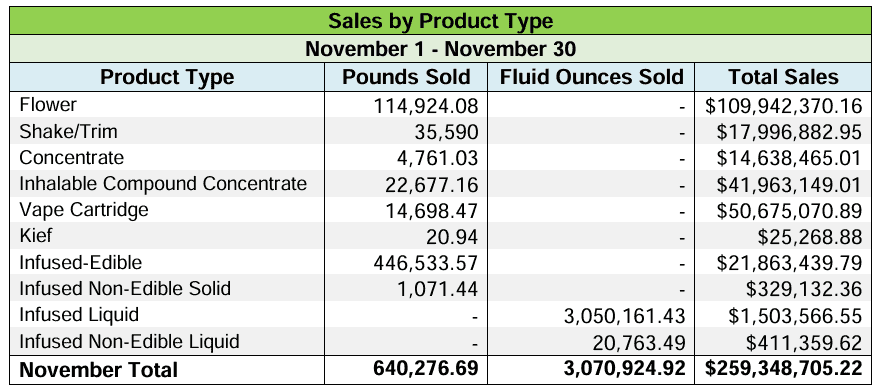COLUMBUS, Ohio – Gov. Mike DeWine was, and is, begging the Ohio legislature to rewrite the state laws surrounding recreational cannabis to peel back provisions in Issue 2, the citizen-initiated statute ratified by Ohio voters in November 2023. He’s joined by Senate President Matt Huffman (R-Lima).
“Getting a consensus on what that action will be, in the House, is probably not going to happen,” outgoing House Speaker Jason Stephens (R-Kitts Hill) said in April.
As legislative negotiations fell flat at the Statehouse, medical marijuana dispensaries down the street and across the state were preparing for their eventual adult-use sales to start, WOSO reported.

Ohio Gov. Mike DeWine
Years ago, Ohio Cannabis Co. owner Brian Wingfield sold video games at a central Ohio chain of stores. Now, he sells marijuana. A few regulatory snags delayed his medical sales in 2019.
“I really wish we would have been there on that opening day,” Wingfield said in an interview in April. “It didn’t happen. I want to be on opening day this time.”
The department of commerce’s Division of Cannabis Control had a similarly busy summer, hashing out the regulatory framework for the program. Issue 2 laid out guidelines but left much of it in the agency’s hands.
At the start of August, the division began emailing dispensaries they’d received their licenses, to go live just days later.
“We’re going to try to move as quickly as possible, while also making sure we’re not making dispensing errors or anything that could make us lose our license,” Terrasana Cannabis Marketing Director Nikki Stanley said in an interview then. “We’re hoping for a lot of people, but also hoping that a lot of people are patient with us.”
Among the other 98 dispensaries to get the first certificates were Wingfield’s three Ohio Cannabis Co. locations.
“I kind of felt like a kid on Christmas morning who got up before his parents did, knows he can’t get out of bed yet and he’s just sitting there, waiting for the appropriate time to get up,” Wingfield said in an interview in August.
The earliest non-medical customers left with sticker shock, seeing higher prices than in other states. Data shows those prices have slowly fallen off since then.
There’s been an undercurrent to everything, though.
Gas stations and corner stores were advertising legal products well before August. Most of it doesn’t fit the federal definition of marijuana, classified as delta-8 THC or another hemp derivative. Some products, oftentimes synthetic, contain ingredients that still induce a high but are unregulated statewide and legal at any age.
State leaders largely believe delta-8 THC is being marketed to children.
Many in the marijuana industry, like Wingfield, want a stricter mandate—arguing these products should be put through the same testing, licensing and regulation processes as what he sells.
Retailers who sell it say an all-out ban would eat at bottom lines. Chris Voudris owns Vapor Haus, a chain of vape shops in the Dayton area, and said in January nearly one-third of his sales came from hemp derivatives, like delta-8 gummies. Voudris welcomed an age restriction then but was wary of stricter statutes.
“In any industry you’re going to have bad actors and horrible marketing,” he said in an interview then.
As was the case this General Assembly, lawmakers never came to a consensus on delta-8 THC, either. The chambers are changing next year, though. Huffman is set to take the speakership over in the House, and he says he’d like to revive marijuana rollbacks, like limiting home grow.
The 135th General Assembly adjourned Dec. 19, but lawmakers will be back not that January has arrived.






